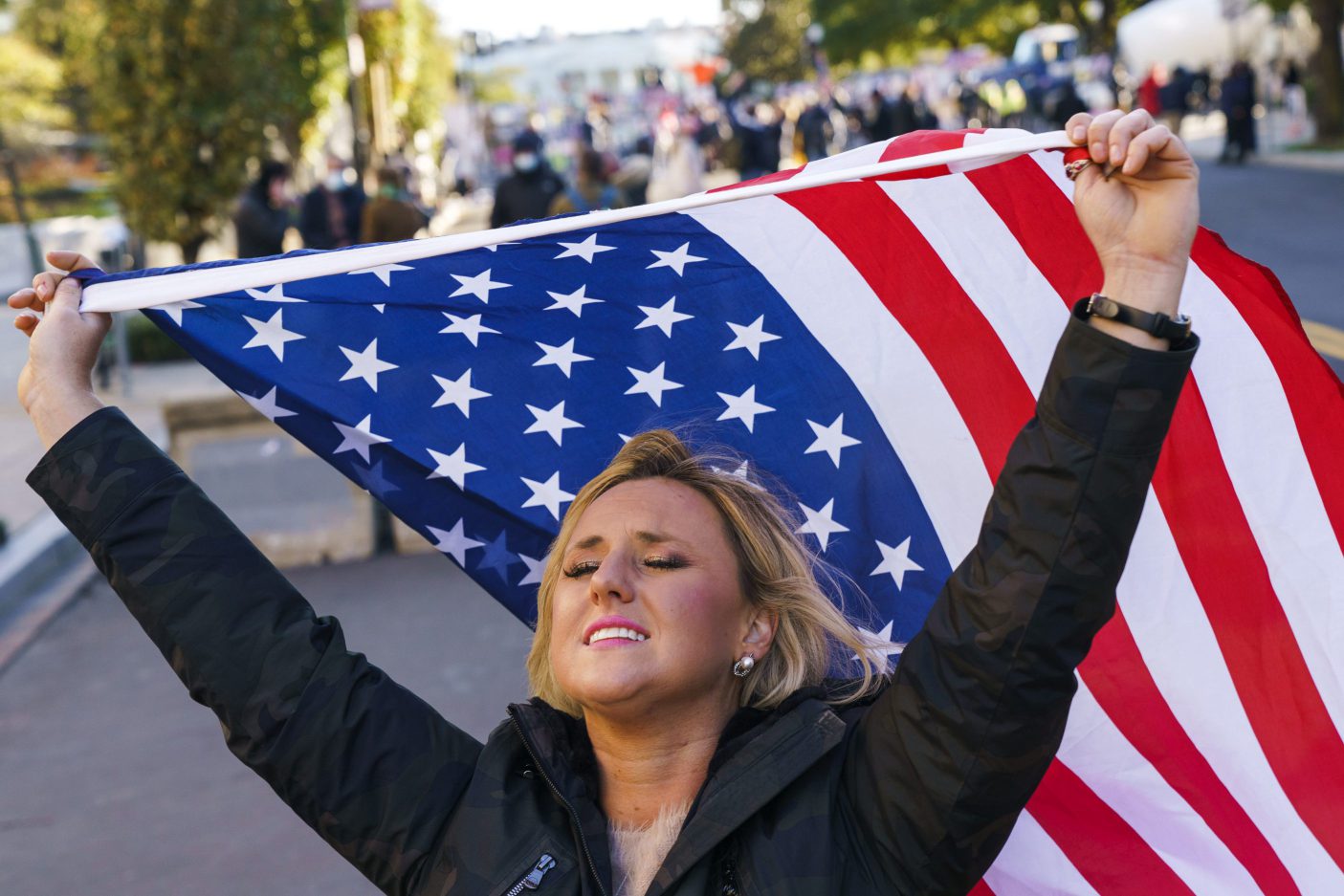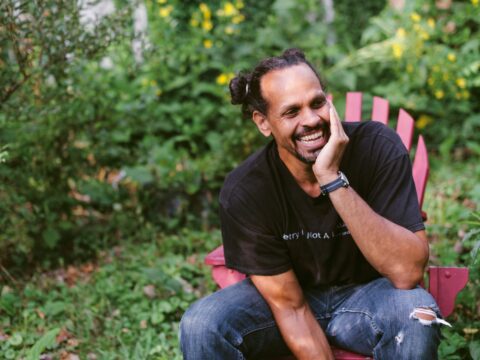In 1929, the prominent white Protestant theologian H. Richard Niebuhr penned The Social Sources of Denominationalism, a critique of factionalism in American Christianity. As I reflected about the 2020 presidential election, these words — which I haven’t read since my graduate school days — have come back to me. They were written nearly a century ago, but they could have been written as a continued lament for our time.
“Denominationalism in the Christian church is such an unacknowledged hypocrisy. It is a compromise, made far too lightly, between Christianity and the world… The division of the churches closely follows the division of men into the castes of national, racial and economic groups. It draws the colour line in the church of God; it fosters the misunderstandings, the self-exaltations, the hatreds of jingoistic nationalism by continuing in the body of Christ the spurious differences of provincial loyalties; it seats the rich and poor apart at the table of the Lord, where the fortunate may enjoy the bounty they have provided while the others feed upon the crusts their poverty affords.”
Here’s the damning portrait of American Christianity, the “unacknowledged hypocrisy” we see from the exit polls. Looking at voting patterns by religious affiliation, I’m struck by two things: 1) The great distance between whites who identified as Christian and whites who claimed no religious affiliation; and 2) The gulf between white evangelical Protestants in particular and their Black fellow Christians. Each of these results are evidence for how strongly Christian identity structured white Americans’ support for Donald Trump, plus, white Americans’ ability to see systemic racism, and white Americans’ inability and/or unwillingness to see the connection between the two.
As pre-election polling suggested, white evangelicals stood by their man. More than three-quarters of white evangelicals voted for President Trump, consistent with support levels from 2016 and with favourability ratings throughout his presidency. Among key battleground states in the Sunbelt, Trump’s support was even higher: 82 percent or more in Florida, Georgia, North Carolina and Texas. In these increasingly competitive states, white evangelicals were the decisive force anchoring those states against the strong tides of demographic and cultural change.
Fifty-seven percent of white Catholics, the other group for which we have clear data from the exit polls, also cast their lot with Trump. While we don’t have definitive numbers for white mainline Protestants, interpolations from the available data suggests that about six in 10 of this group also voted for Trump (AP/Votecast). Given Trump’s tumultuous first term — capped with a final year that brought us a global pandemic, widespread protests over racial justice, and massive unemployment — this consistency in broad white Christian support for Trump, across both 2016 and 2020, is remarkable.
More on Broadview:
- How two American Christians are looking at life, post-election
- It’s time for Canada’s statues to fall
- This retired cop wants to see police culture transformed
These voting patterns of white Christians stood in stark contrast to two other groups of voters: white voters who claim no religious affiliation and African-American voters. White voters who are religiously unaffiliated, for example, are half as likely as white Christians to vote for Trump (28 percent). And there is no group further away from white evangelical voting patterns than African Americans. While the exit polls don’t break out African Americans by religion, nine in 10 African Americans supported Biden; and eight in 10 African Americans identify as Christian. In a pre-election survey by Public Religion Research Institute (PRRI), of which I am the CEO, nine in 10 Black Protestants held an unfavourable view of Trump.
There is also direct evidence in the exit polls that the legacy of white supremacy is still dividing our country. There’s no way in the publicly available exit polls to break out findings on attitudinal questions by religion, but the correlations between racial attitudes and vote choice are stark and unsettling. Encouragingly, most Americans favour the Black Lives Matter movement (57 percent); see racism as an important problem (69 percent); and believe the criminal justice system treats Black people unfairly (53 percent). But among the sizable minority of Americans who disagree with each of these statements, more than 80 percent voted for Donald Trump. In other words, a denial of systemic racism has become a defining trait among Trump’s strongest supporters. According to the exit polls, this divide over systemic racism is now the tip of the spear in the new culture wars, producing greater polarization than the issue of abortion.
White supremacy, the organizing of society based on the lie that white lives are more valuable than Black or brown lives, is America’s original sin that still rends the social fabric of our country.
As I documented in my recent book White Too Long: The Legacy of White Supremacy in American Christianity, white Christianity plays a significant role in diminishing white Americans’ ability to acknowledge systemic racism. For example, in PRRI’s 2020 American Values Survey, 70 percent of white evangelicals, 58 percent of white Catholics, and 57 percent of white mainline Protestants believed that the killing of unarmed African Americans by police were isolated incidents rather than part of a pattern of how police treat African Americans. (Does this pattern seem familiar?) And those who hold those beliefs were overwhelmingly more likely to hold favourable views of Trump: 68 percent viewed him favourably, in contrast to just 12 percent among those who say there is a broader pattern of police violence against Black Americans. The denial of systemic racism — a cornerstone of white supremacy — and support for Trump walked hand in hand, and together they lead white Christians further away from their African-American brothers and sisters.
I would be remiss if I failed to point out, amid all the unsettling evidence of how white racial attitudes drove support for Trump, some complexities. My home state of Mississippi voted (71 percent to 29 percent) to adopt a new flag that, for the first time since 1894, did not include the Confederate battle flag. Notably, earlier this summer, none other than the Mississippi Baptist Convention (the state arm of the Southern Baptist Convention) called on the governor and legislature to take this action. On the same ballot, 59 percent of Mississippians, including 89 percent of Mississippi’s white evangelicals, declared their support for Trump.
Trump will leave behind the deep fissures his presidency highlighted. White supremacy, the organizing of society based on the lie that white lives are more valuable than Black or brown lives, is America’s original sin that still rends the social fabric of our country. White Christians’ tolerance of its continued presence in our lives and in our churches has meant that we see these racial divides as normal rather than as the theological scandal they are. As James Baldwin so plainly put it half a century ago, we have to address this history that is stifling our shared future if we’re finally going to “end the racial nightmare, and achieve our country.”
Robert P. Jones is the CEO and Founder of Public Religion Research Institute (PRRI) and author of White Too Long: The Legacy of White Supremacy in American Christianity (Simon & Schuster, 2020)
We hope you found this Broadview article engaging.
Our team is working hard to bring you more independent, award-winning journalism. But Broadview is a nonprofit and these are tough times for magazines. Please consider supporting our work. There are a number of ways to do so:
- Subscribe to our magazine and you’ll receive intelligent, timely stories and perspectives delivered to your home 10 times a year.
- Donate to our Friends Fund.
- Give the gift of Broadview to someone special in your life and make a difference!
Thank you for being such wonderful readers.
Jocelyn Bell
Editor/Publisher















Denominationalism is far better than the alternative, yes it is unattractive compared the the early Church in Acts. However, I would rather fellowship with those who I can agree with “theologically” rather than share communion with someone who has bitter contempt towards me. God created differences,
Genesis he created language barriers, in Exodus he created tribal barriers (someone from the tribe of Judah could never be a priest), and He still maintained Jew, Gentile, man, woman, slave and free. (He sees us as the same, but we are not to function as the same). If we have hatred or negligence towards others, it is not the fault of denominationalism or society, it is of our own doing.
Too often we are seeing people voting for “Trump”, this may be the leader of the Republican party, but not every Republican likes Trump. Unfortunately the Americans have their politics set in such a way, that you need to vote Republican or Democrat. If you distain what the party has to offer, you’re forced to choose the “lesser of two evils”. (At least in Canada we have several options). I think we forget how fortunate we are to have a democratic society, bad as it is, it is still a whole lot better than the alternative, and no matter the outcome, we only need to wait four years to change it, whether Black, White, Christian, Atheist, man or woman. I’ll wait the next four years to see if anything has changed the “racial divide”, or will we still blame Trump?
It must be obvious by now that Christianity has failed to comprehend the essence of holy writings.
How can we be so mislead by paid pastors to support a hateful leader that dispises the poor and the refugees.
If you’re white , you or your ancestors were refugees in the past!
Amen Walter. Well said.
I’m sorry, I must be part of Christianity, what is the essence of holy writings?
Outside of their views, are pastors worthy of their support?
1 Timothy 5:17-18 & 1 Corinthians 9:14
Are you compelled to obey what the pastor tells you? 1 John 4:1-3
If you look long and hard we all have a refugee background.
Genesis 3:23-24 & 11:8
They can call themselves what they like. Trump supporters are NOT Christians.
Once again over 74million Americans voted for Donald Trump. More African Americans, Latino Americans, white Americans, atheist Americans, young Americans, old Americans, and yes ‘Christian’ Americans voted for Donald Trump than any candidate ever except Joe Biden. So, they are all racist?
I could refer your readers to countless African American intellectuals, journalists, sports figures, ect, who argue that systematic racism is not close to being the major issue in the State. But honestly the folks that read this magazine dont seem that interested in other viewpoints. This guy uses the word racist like a shotgun blast in a crowd. Curious that he did not aim his shotgun at the most violent racists in the US today. thats BLM INC. and Antifa. Some of them are christian and some are not.